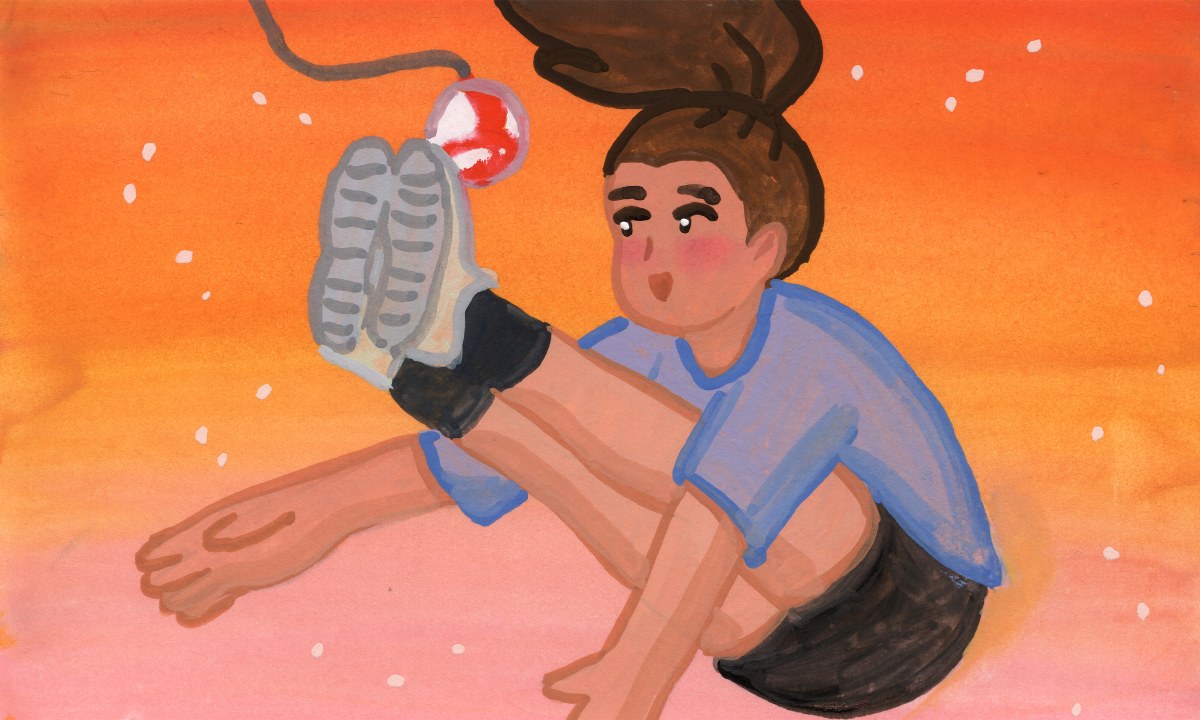High Kicks and High Hopes: Daisy Vanblarcom Dreams of Sharing Arctic Sports with the World
She fell in love with arctic sports and now she hopes to help it spread everywhere. Daisy Vanblarcom is of Yupik and Aleut ancestry. Her family is from Dillingham, Alaska and she lives in Wasilla. She is competing in the Arctic Winter Games for the second time. In 2024, when she first came to the games, she competed in arctic sports. Her message to her supporters in her home community is, “Just keep on pushing. We're strong willed in Dillingham, and we’ve just got to keep on pushing."
Vanblarcom initially fell in love with arctic sports in second grade. Her PE teacher encouraged her to try it when she was new to the school so she could try a range of activities. Giving it a try sparked 12 years of fun and hard work because she excelled at it.
Beyond competing at the Arctic Winter Games, Vanblarcom competed in the World Eskimo Indian Olympics in Fairbanks over the last couple years. She’s made a lot of friends from Canada and Greenland competing and had the chance to compete with her siblings.
When it comes to the events where she puts the most time into, Vanblarcom practices the kicking events the most, particularly the two-foot high kick. At the same time, she sees herself as an all-around athlete, shining at each of the events.
As far as inspiration to pursue sports at a competitive level, it was Vanblarcom’s elementary school coach that got her into the games. He was a big inspiration for her who still attends some of their competitions to cheer them on even though they are long out of elementary school. She was also inspired by fellow athlete Allie Johnston who holds records in her sports.
It hasn’t always been smooth sailing. Vanblarcom was in middle school when the pandemic started and the Arctic Winter Games were put on pause for a year or two, schools were shut down and they didn’t have a practice area or coach. In seventh and eighth grade, it was hard to continue but things got going again. Over the last couple years, she’s faced some injuries, knee and hip pain but she has been receiving care from a physical therapist so she can keep playing through it.

Playing her sport, she stays connected to her culture because it is a cultural sport. “There's always people there who are more deeply rooted into the villages and into the cultures. I've met people there who helped me stay connected and keep me updated on things in the community that are happening,” she explains. A social butterfly at events, she talks to people about it and that social inclination helps her stay entwined with her community.
Her advice for a younger Indigenous athlete just starting their journey into sports would be, “You need to be really mentally strong. It takes a toll on your body, but you also need to have that strong presence in your mind to push yourself further and know that you can do it. That's not just an Arctic sports thing. In any sport, you’ve got to be able to have a tough mental presence."
To take care of her mental health and overall well being as an athlete, Vanblarcom does physical therapy work and also stays social to stay connected and keep herself in community. She tries to keep herself close to all her people so she doesn’t stray.
Her goals outside the winter games in sport is to open up Arctic sports beyond Canada and Alaska. “I think NYO (arctic sports) should be everywhere and it’s good to get to experience these games and the joy that they bring,” she explains, talking about how she wants to continue that after she graduates and stops competing. She’s thought about building up the sport internationally but first she’s finishing up school.
After falling in love with arctic sports, Daisy Vanblarcom hopes to help spread it everywhere. She learned to excel at high kicks and now she has high hopes for the future, wanting to share this cultural activity beyond Alaska and Canada to the world. Inspired by her elementary school coach, she’s found something she adores and a way to stay connected to culture and community.
Thanks to Alison Tedford Seaweed for authoring this article.
Future Pathways Fireside Chats are a project of TakingITGlobal's Connected North Program.
Funding is generously provided by the RBC Foundation in support of RBC Future Launch, and the Government of Canada's Supports for Student Learning program.